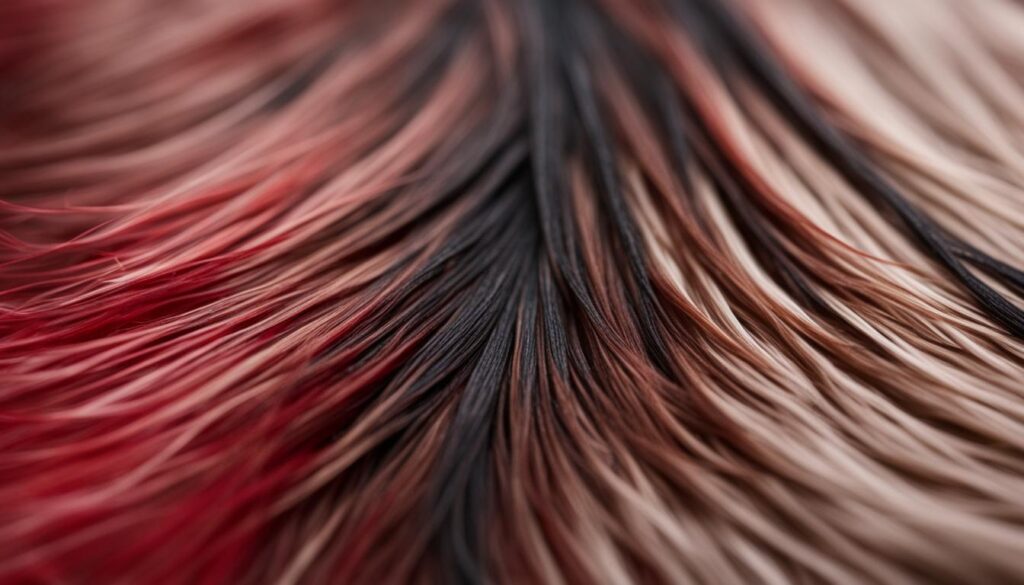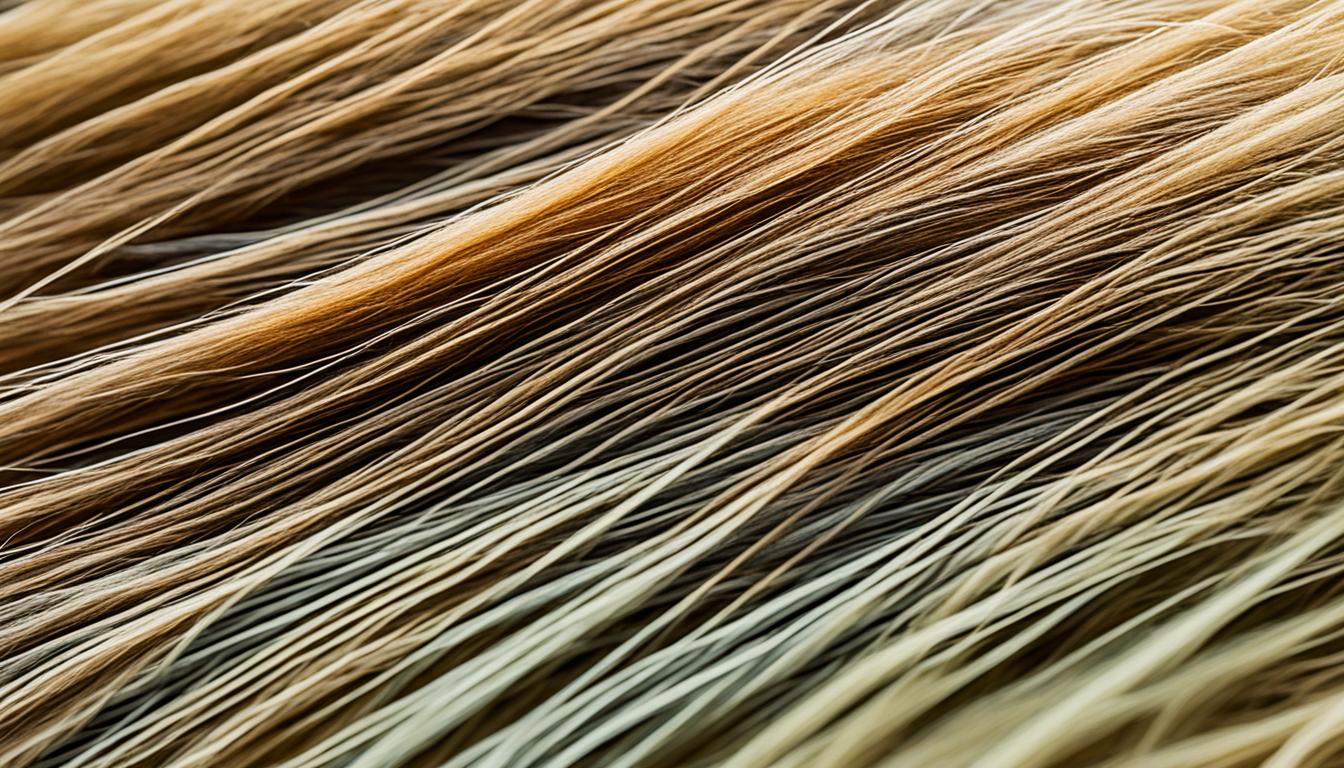What happens if you never shave your pubic hair?
As an individual, I have often wondered about the consequences of not shaving my pubic hair. Is it necessary? What are the risks involved? This article aims to provide you with informative insights into the effects of not shaving your pubic hair, shedding light on the potential benefits and cautionary measures to consider.
Pubic hair, naturally present in the genital area, serves multiple purposes. It acts as a protective layer for the skin, keeping it warm and moisturized. Pubic hair also helps prevent friction during sexual activity and acts as a natural barrier against dust, dirt, and germs. Furthermore, it may even play a role in sexual attraction and pleasure. While there is no medical necessity to remove pubic hair, societal expectations often lead individuals to groom it. However, there are safe ways to groom if one chooses to do so.
Stay tuned to discover the purpose of pubic hair, different grooming options, potential benefits of embracing your natural state, and the importance of personal choice in the subsequent sections.
Key Takeaways:
- Natural pubic hair serves as a protective layer for the sensitive skin in the genital area.
- Not shaving pubic hair has no adverse health effects and can contribute to good hygiene.
- Trimming is the safest option for grooming pubic hair.
- Benefits of not shaving include reduced risk of injury, skin irritation, and ingrown hairs.
- The decision to groom or not groom pubic hair is a personal choice free from societal pressure.
The purpose of pubic hair and its natural state
Pubic hair serves an essential purpose in the body, providing a range of benefits and maintaining hygienic conditions. Contrary to societal expectations, the natural state of pubic hair is not dirty or unclean. In fact, it plays a vital role in protecting the skin and preventing infection.
Pubic hair acts as a barrier, shielding the delicate skin of the genitals from external irritants, friction, and potential harm. It helps to trap sweat, oil, and bacteria, contributing to the natural self-cleaning process of the vagina. By doing so, it aids in maintaining a healthy balance of flora and pH levels, promoting overall vaginal health.
The natural state of pubic hair reflects the body’s innate capacity to maintain cleanliness and balance. It is not necessary to remove pubic hair for hygiene purposes.
Regular rinsing with water is sufficient to ensure good hygiene. This simple practice helps to cleanse the area without disrupting the natural ecosystem of the skin and vagina. Frequently washing with harsh soaps or using aggressive hair removal methods can strip away the protective layer of pubic hair and disrupt the body’s natural processes.
In summary, pubic hair serves a crucial purpose in maintaining the health and well-being of the genital area. It is essential to embrace the natural state of pubic hair and prioritize hygiene through gentle cleansing rather than aggressive hair removal methods.
In the following section, we will explore various options for pubic hair removal and the potential consequences associated with each method.
Options for Pubic Hair Removal
While there is no requirement to remove pubic hair, many individuals choose to groom for personal comfort or preference. There are various options available for pubic hair removal, each with its own benefits and risks.
1. Trimming
Trimming is the safest option for pubic hair removal without shaving. It involves shortening the hair without cutting it close to the skin. Trimming helps to keep the hair neat and manageable while maintaining its natural growth.
2. Shaving
Shaving is a popular method of pubic hair removal. It provides temporary results and can be done easily at home. However, shaving can cause skin irritation, ingrown hairs, and razor burns. It is important to use a clean razor and shaving cream to minimize the risk of irritation and infection.
3. Waxing
Waxing involves applying hot or cold wax to the pubic hair and removing it quickly, pulling the hair out from the root. This method provides longer-lasting results compared to shaving. However, waxing can be painful and may cause skin irritation and ingrown hairs.
4. Sugaring
Sugaring is a natural alternative to waxing. It involves applying a sticky paste made of sugar, lemon juice, and water onto the hair and removing it in the opposite direction of hair growth. Sugaring is less painful than waxing and can also lead to longer-lasting results.
5. Laser Hair Removal
Laser hair removal is a permanent hair reduction method that uses laser technology to target the hair follicles. It is an effective option for long-term hair removal, but multiple sessions are usually required for optimal results. Laser hair removal should be performed by a certified professional to minimize the risk of burns and skin damage.
6. Depilatory Creams
Depilatory creams contain chemicals that dissolve the protein structure of the hair, making it easy to wipe or wash away. These creams provide temporary results and are relatively painless compared to other methods. However, they can cause skin irritation and allergic reactions. It is important to follow the instructions carefully and perform a patch test before using any depilatory cream.
It is essential to make informed decisions about pubic hair removal and choose the method that suits your needs and preferences. Using clean and appropriate tools, seeking professional help when necessary, and following proper aftercare instructions can help minimize the risks associated with pubic hair removal.
The Benefits of Not Shaving Pubic Hair
| Benefits | Description |
|---|---|
| 1. Protection | Pubic hair acts as a natural cushion during sexual activity, reducing the risk of injury. |
| 2. Reduced Skin Irritation | Not shaving pubic hair lowers the likelihood of developing rashes, skin irritation, and ingrown hairs. |
| 3. Increased Sexual Attraction | Pubic hair may trap pheromones, which can attract potential partners on a biological level. |
| 4. Lower Risk of STIs | Frequent pubic hair removal has been associated with a higher risk of sexually transmitted infections (STIs). |
| 5. Time and Cost Savings | Not shaving saves time and money spent on regular grooming. |
The benefits of not shaving pubic hair
Keeping pubic hair intact can have several advantages. Here are some benefits of not shaving pubic hair:
Natural Cushion
Pubic hair acts as a natural cushion during sexual activity, reducing the risk of injury. It provides a protective layer between the skin and potential friction, offering added comfort and preventing discomfort or pain.
Reduced Skin Irritation
By not shaving, you can lower the likelihood of developing rashes, skin irritation, and ingrown hairs. Shaving can cause small cuts or nicks, leading to irritation and itchiness. Maintaining your pubic hair can help alleviate these issues and promote healthier skin.
Trapping Pheromones
Pubic hair may also trap pheromones, which are natural scents that can attract potential partners on a biological level. These pheromones play a role in human attraction and can enhance personal relationships.
Lower Risk of STIs
Interestingly, frequent pubic hair removal has been associated with a higher risk of sexually transmitted infections (STIs). Pubic hair acts as a barrier, reducing the chances of bacteria and viruses entering the body. Keeping your pubic hair intact can provide an additional layer of protection against STIs.
Time and Money Saved
A final benefit of not shaving pubic hair is the time and money saved on regular grooming. Shaving or waxing requires continuous upkeep, which can be time-consuming and costly. Embracing your natural pubic hair eliminates these ongoing grooming obligations.
By choosing not to shave your pubic hair, you can experience these benefits while embracing your body’s natural state.
| Benefits of Not Shaving Pubic Hair |
|---|
| Natural cushion during sexual activity, reducing the risk of injury |
| Lower likelihood of developing rashes, skin irritation, and ingrown hairs |
| Potential to trap pheromones, attracting potential partners |
| Lower risk of sexually transmitted infections (STIs) |
| Time and money saved on regular grooming |

Embracing the natural state of your pubic hair can offer various advantages, such as protection, reduced skin irritations, and potential increased sexual attraction. Additionally, keeping your pubic hair intact may lower the risk of STIs and save you time and money spent on regular grooming.
Cautionary measures for pubic hair grooming
If you choose to groom your pubic hair, it’s important to take certain precautions to ensure a safe and comfortable experience. Here are some cautionary measures to keep in mind:
1. Use appropriate lubrication
When grooming your pubic hair, it’s important to use a suitable lubricant to minimize friction and irritation. Soap or shaving cream can serve as effective lubricants during the grooming process.
2. Take your time
Rushing through the grooming process can increase the risk of cuts, nicks, and skin irritation. It’s crucial to take your time and be patient while trimming or removing your pubic hair.
3. Use a mirror for guidance
Using a mirror can help you achieve precise and safe grooming. It allows you to have a clear view of the area, ensuring that you trim the hair evenly and avoid any accidental cuts or injuries.
4. Avoid grooming before gynecological surgery
If you have a gynecological surgery scheduled, it is advisable to refrain from shaving, waxing, or undergoing laser hair removal within two weeks before the procedure. This precaution helps minimize the risk of infection and ensures a smoother recovery process.
5. Shaving before giving birth is unnecessary
Contrary to popular belief, it is unnecessary to shave your pubic hair before giving birth. Medical professionals no longer require or recommend shaving before delivery. Focus on preparing for a safe and comfortable birthing experience instead.
By following these cautionary measures, you can ensure a safer and more comfortable pubic hair grooming experience.
Societal Pressure and Personal Choice
The decision to groom or not groom pubic hair is entirely personal. Society’s standards and expectations around pubic hair grooming have evolved over time, but it is important to remember that each individual has the right to choose what feels comfortable and empowering for them. There is no need to apologize or feel ashamed about one’s pubic hair, as it is a normal and natural part of the body.
Acknowledging and understanding societal expectations is essential, but personal preference and comfort should be the primary factors influencing one’s decision regarding pubic hair grooming. It is important to prioritize self-acceptance and not let external pressures dictate our choices related to our bodies.
“Your pubic hair, your choice. Don’t let societal expectations define your comfort and self-confidence.”
Regardless of whether you choose to leave your pubic hair in its natural state, trim it, or remove it completely, the decision should always come from a place of personal preference and what makes you feel most comfortable in your own skin.
Remember, societal expectations should never override your personal agency and the power to make decisions about your own body. Choosing to embrace your natural pubic hair is a valid and empowering choice that can challenge societal norms and promote body positivity.

By understanding that there is no one-size-fits-all approach to pubic hair grooming, we can create a more inclusive and accepting society that values personal autonomy and respects individual choices. It’s time to celebrate diversity and break free from the confines of societal expectations when it comes to pubic hair.
Conclusion
Embracing the natural state of pubic hair and choosing not to shave can have significant consequences and effects on both our physical and emotional well-being. By allowing our pubic hair to grow freely, we provide a protective layer for our skin, reducing the risk of irritation and infections. Moreover, keeping our pubic hair intact can potentially enhance our sexual attraction, as it traps pheromones that may play a role in attracting potential partners.
However, the decision to shave or not to shave ultimately rests with each individual based on their personal comfort and preference. There is no right or wrong choice when it comes to pubic hair grooming. What matters most is that we prioritize our own well-being and self-acceptance, allowing ourselves to make decisions that align with our own desires and needs.
In a society that often imposes beauty standards and expectations, it’s vital to remember that our bodies are unique and individual. We shouldn’t feel compelled to conform to societal pressures if it doesn’t resonate with us. Instead, let’s celebrate our bodies in their natural state, embracing our pubic hair as a normal and beautiful part of who we are.
FAQ
What happens if you never shave your pubic hair?
Not shaving your pubic hair has no dire consequences or negative health effects. Pubic hair is a natural and protective feature of the body. It helps to keep the skin warm and moisturized, prevents friction during sexual activity, and acts as a barrier against dust, dirt, and germs. It also plays a role in sexual attraction and pleasure.
How is pubic hair beneficial and what is its natural state?
Pubic hair serves several purposes, including protecting the skin and preventing infection. It also traps sweat, oil, and bacteria, contributing to the natural self-cleaning process of the vagina. The natural state of pubic hair is not dirty or unclean, and there is no medical need to remove it. Maintaining good hygiene simply involves regular rinsing with water.
What are the options for pubic hair removal?
While there is no requirement to remove pubic hair, some individuals choose to groom for personal comfort or preference. The safest option for removal is trimming, which shortens the hair without cutting close to the skin. Shaving, waxing, sugaring, laser hair removal, and depilatory creams are other options but come with various risks, including skin irritation, ingrown hairs, burns, and infection. It is important to use clean and appropriate tools and seek professional help when necessary.
What are the benefits of not shaving pubic hair?
Keeping pubic hair intact can have several advantages. It acts as a natural cushion during sexual activity, reducing the risk of injury. Not shaving can also lower the likelihood of developing rashes, skin irritation, and ingrown hairs. Moreover, pubic hair may trap pheromones, which can attract potential partners on a biological level. Additionally, frequent pubic hair removal has been associated with a higher risk of sexually transmitted infections (STIs). Lastly, not shaving saves time and money spent on regular grooming.
What cautionary measures should be taken for pubic hair grooming?
If choosing to groom pubic hair, it is essential to take precautions. Using soap or shaving cream as a lubricant and taking one’s time are important. Using a mirror as a guide can help ensure safe and precise grooming. However, it is advised to avoid shaving, waxing, or laser hair removal within two weeks of gynecological surgery to prevent infection. It is also unnecessary to shave before giving birth.
How does societal pressure affect personal choice regarding pubic hair grooming?
The decision to groom or not groom pubic hair is entirely personal. Society’s standards and expectations around pubic hair grooming have evolved over time, but it is important to remember that each individual has the right to choose what feels comfortable and empowering for them. There is no need to apologize or feel ashamed about one’s pubic hair, as it is a normal and natural part of the body.
What are the consequences or effects of not shaving pubic hair?
In terms of health and well-being, there are no negative consequences or effects of not shaving pubic hair. It is a personal choice that does not impact physical health. However, societal expectations and personal preferences may influence the decision to groom or not groom. It’s important to prioritize individual choice and self-acceptance when it comes to pubic hair grooming.
Source Links
- https://www.acog.org/womens-health/experts-and-stories/the-latest/to-shave-or-not-to-shave-an-ob-gyns-guide-to-pubic-hair-care
- https://timesofindia.com/life-style/health-fitness/photo-stories/6-reasons-you-should-not-shave-your-pubic-hair/photostory/59201253.cms
- https://www.romper.com/life/7-surprising-benefits-of-not-shaving-down-there-thatll-make-you-rethink-your-razor-18185203






